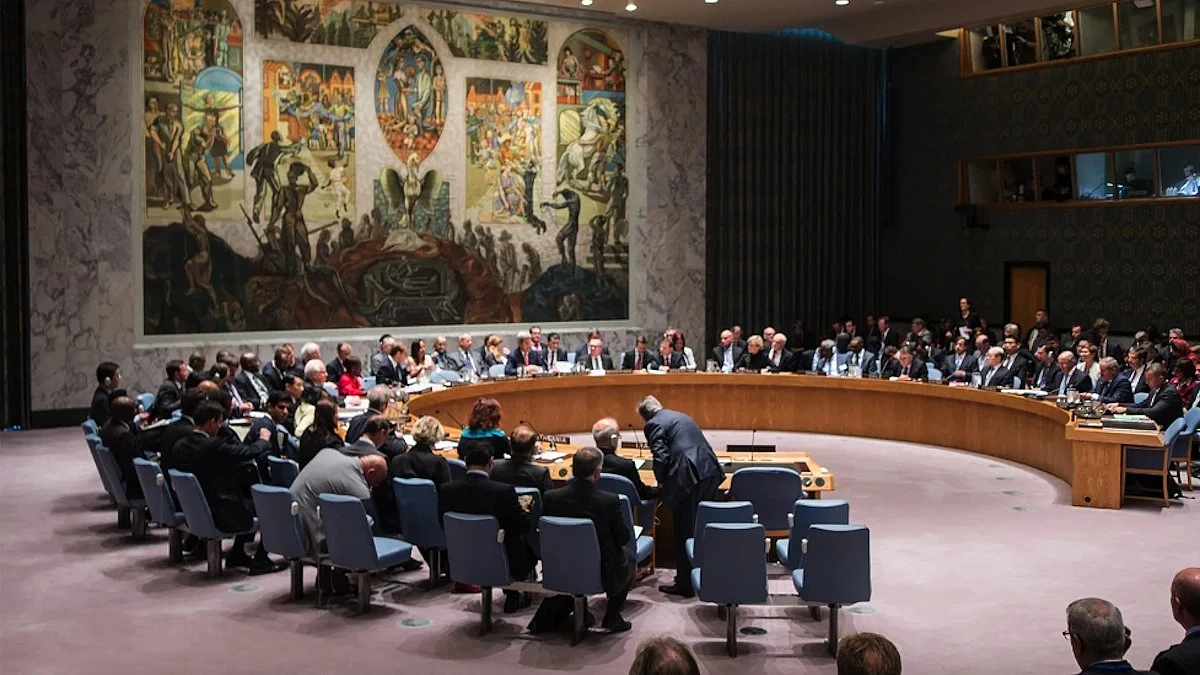UN climate meetings organised in a way that benefits richer, larger countries: Study
Powerful countries have more influence with additional delegates, leaving civil society and indigenous groups underrepresented

The UN COP climate meetings are organised in a way that benefits richer and larger countries at the expense of smaller and poorer ones, according to a study.
The research by a team from the University of Leeds in the UK and Lund University in Sweden also labels the participating countries as either Radicals, Opportunists, Hypocrites or Evaders.
Every year, the UN organises its global climate change Conference of the Parties, "COP," with the aim to create action to halt climate change and support those vulnerable to the effects of climate change.
"Our analysis clearly shows that some groups are not heard or represented. The very structure of the COPs makes it almost impossible for smaller countries to voice their interests since they are not able to be present in all the parallel negotiations," says Lina Lefstad, a PhD student at Lund University and lead author of the study.
The study, published in the journal Critical Policy Studies, is based on an analysis of fifteen previous COPs.
The analysis shows that countries with more economic power have more influence over the negation processes at the COPs at the expense of poorer, often smaller, and less developed countries. This power materialises in different ways.
For example, the wealthier the country is, the more delegates it can send to COP, which means that it can be active in all the parallel sessions.
At COP15 in Denmark in 2009, China sent 233 delegates, compared to Haiti, which sent seven, and Chad, which sent three people, respectively, the researchers found.
"The UN should at the very least have a cap on how many delegates a country or an organization can send. It is only by changing the structure to allow for the majority of voices to be heard the negotiations can become truly fair," said Lefstad.
The researchers point out how the number of delegates sent by the fossil fuel industry are increasing annually, with 636 sent to last year's COP27 in Egypt.
In contrast, representatives from civil society and indigenous groups are not present in the same numbers, which means that they have less opportunity to build alliances and present their views, the researchers said.
This has ramifications for what perspectives are heard at the COP, they said.
"While neither the fossil industry nor civil society have voting powers at the COP, this is still a major problem," said Jouni Paavola, co-author of the study and professor at the University of Leeds.
"The fossil fuel industry builds strong alliances with oil-producing countries and lobbies, with the aim to block decisions to, for example, phase out fossil fuels," Paavola said.
The study also analyses how different countries and alliances frame climate justice for their own strategic ends. It identified four different country groups, entitled the Radicals, the Opportunists, the Hypocrites, and the Evaders.
While the Radicals, such as small island states and civil society, fight for novel mechanisms to address climate change effects, the Opportunists, such as Saudi Arabia and India, frame climate justice around historical responsibility and claim their right to develop economically, according to the researchers.
The Hypocrites, which include the EU, Canada, and Norway, recognise their contribution to climate change but have so far done little to deliver on their promises, they said.
The researchers said the Evaders aim to block justice claims made by others, view the idea of equity as too prescriptive, and include countries like the US.
"These groupings show how the concept of climate justice is being used very strategically for countries' own ends. Unless the UN develops a universally agreed response to help those who are suffering the most from climate change, climate justice will continue to be used as a negotiating tool, as opposed to levering real change," Lefstad added.
Follow us on: Facebook, Twitter, Google News, Instagram
Join our official telegram channel (@nationalherald) and stay updated with the latest headlines